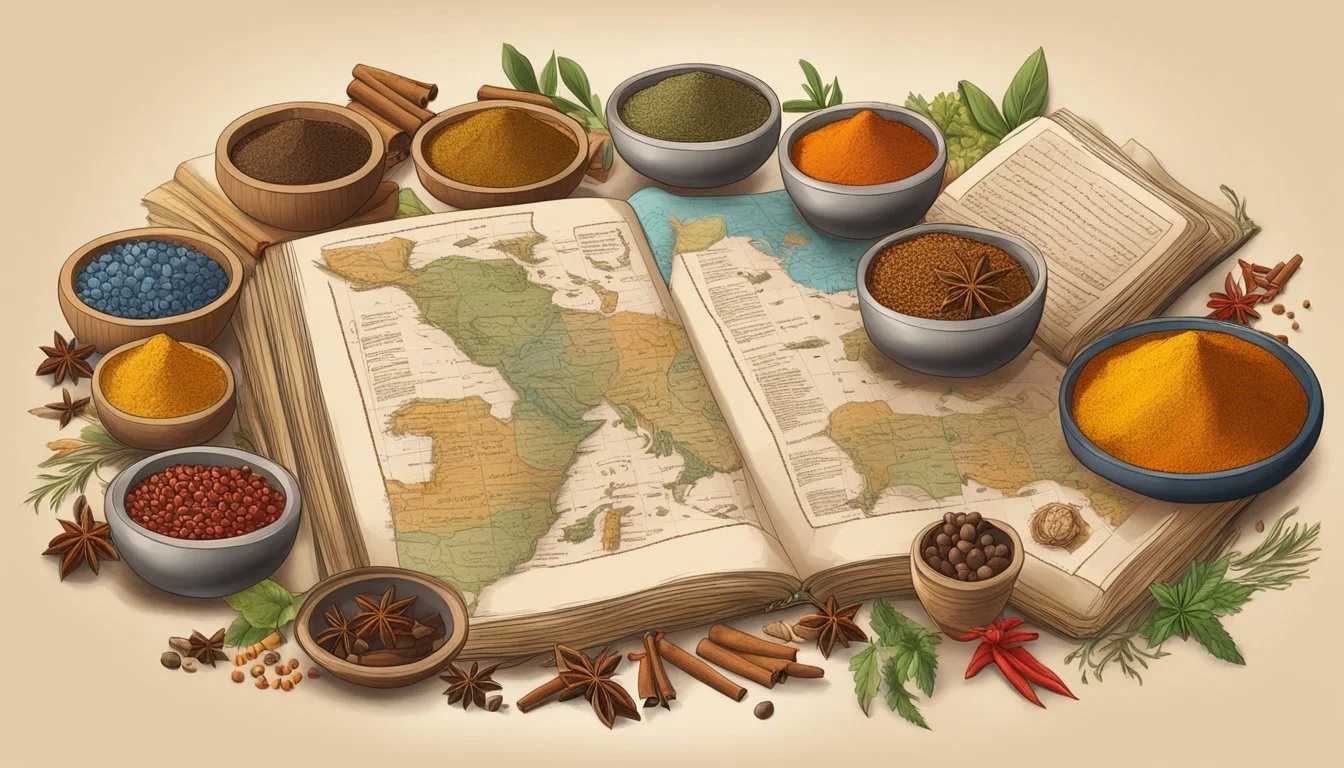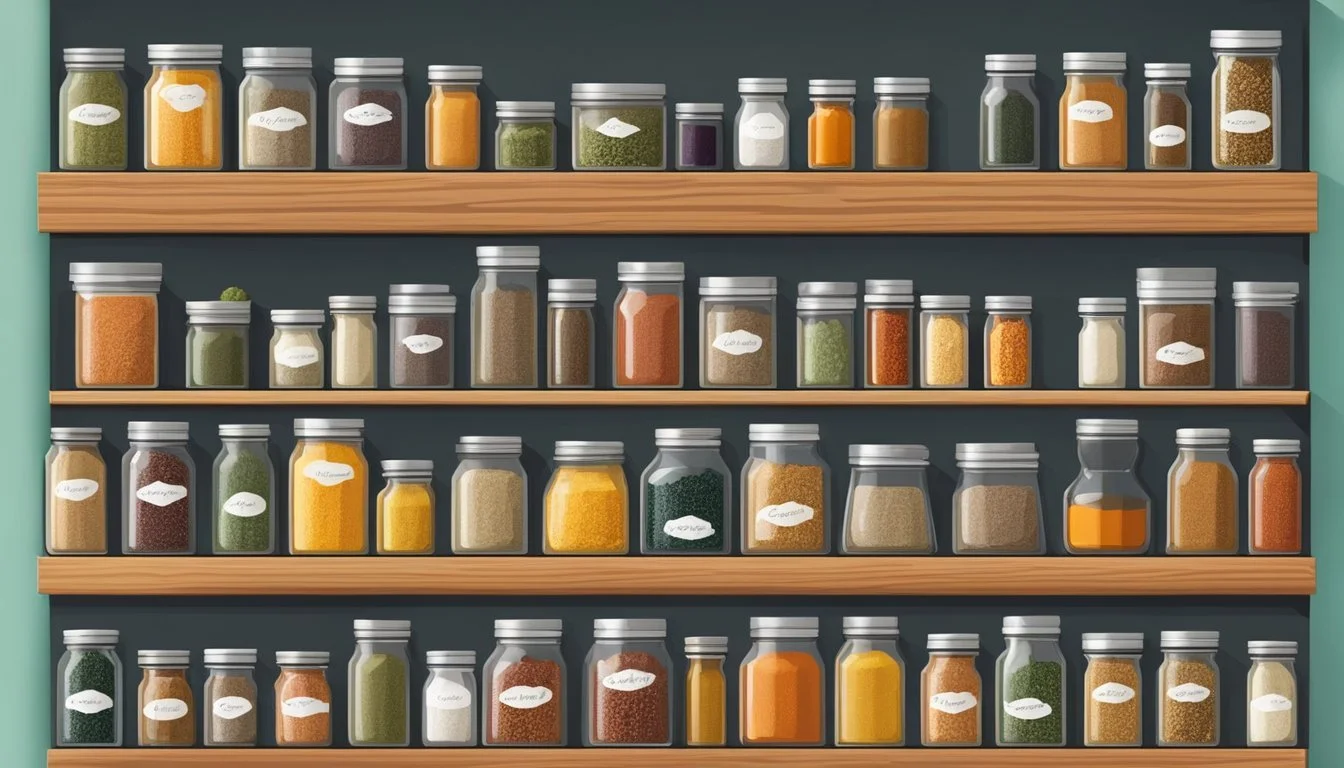The Spice of Life
Unveiling Health Benefits and Flavor Enhancement with Spices
Spices have long been celebrated for their ability to transform the flavor of food, ranging from the earthy depths of cumin to the warming sweetness of cinnamon. However, these vibrant ingredients offer far more than a sensory experience; they unlock a spectrum of health benefits that have been recognized since ancient times. Rich in antioxidants, anti-inflammatory compounds, and other bioactive substances, spices can actively contribute to heart health, blood sugar regulation, and overall wellness.
Beyond their medicinal properties, spices serve as culinary alchemists, turning simple ingredients into rich, complex flavors. By incorporating spices such as black pepper, ginger, and cardamom into their cooking, individuals can reduce their reliance on salt and unhealthy fats without sacrificing taste. Aromatic vegetables like onions and garlic work synergistically with these spices, enhancing both the nutritional profile and the taste of any dish.
The marriage of flavor and health does not necessitate a compromise on either front. Instead, it offers an invitation to explore the diverse world of spices. As each spice holds its own profile of health benefits, incorporating a variety into one's diet can contribute to a more balanced and health-supportive culinary repertoire. Whether one is aiming to manage blood sugar levels with cinnamon or reduce inflammation with ginger, the strategic use of spices can be a simple yet effective approach to improved health.
Historical Significance of Spices
Spices have not only seasoned the world's cuisines but have also served as catalysts for trade, exploration, and cultural exchange. This section delves into their profound influence on global history.
Cultural Impact of Spices
The allure of spices is rooted deeply in their ability to enhance, preserve, and transform food. In the Mediterranean diet, for example, spices like oregano, basil, and thyme are cornerstones, not just for their flavors but also for their reported health benefits. Beyond cuisine, spices such as sugar and salt have held significant social and economic value. Salt was instrumental in preserving food, a vital factor before modern refrigeration, while the sweetness of sugar has had a far-reaching impact on eating habits worldwide.
Culturally, spices have done much more than just flavor food; they've been intertwined with religion, medicine, and socio-economic structures. Plants such as cinnamon and nutmeg became symbols of wealth and power in medieval and Renaissance Europe, often used as luxury gifts or dowries.
Milestones in Spice Trade
The spice trade comprises a rich tapestry of historical milestones:
15th Century: The quest for spices like pepper, cloves, and cinnamon propelled the Age of Exploration, with European explorers seeking direct access to the lucrative Eastern spice trade to bypass Middle Eastern intermediaries.
Ancient Egypt: Spices played a role beyond cuisine as the Egyptians employed cinnamon, cumin, and coriander in their embalming processes.
Historically, the spice trade was centered around Asia and the Middle East, with spices eventually reaching European markets through complex overland and maritime routes. The control over these routes, and subsequently the spice trade itself, became pivotal in establishing and sustaining the power of empires and trade organizations, notably the Dutch East India Company.
Health Benefits of Spices
Spices have been celebrated for their ability to enhance flavor, but they are equally lauded for their health benefits. They contribute to digestive health, anti-inflammatory and antioxidant properties, cardiovascular benefits, glucose regulation, and immune system support.
Spices and Digestive Health
The inclusion of spices in meals can aid in digestive efficiency. Cumin and cinnamon, for instance, have been reported to stimulate digestive enzymes, which can facilitate the breakdown of food and alleviate discomforts like bloating and gas.
Anti-Inflammatory and Antioxidant Effects
Many spices house potent anti-inflammatory and antioxidant compounds. Turmeric, known for its active ingredient curcumin, has been widely recognized for combatting inflammation, which is linked to conditions like arthritis. Substances such as cayenne and cinnamon also contribute to reducing oxidative stress in the body.
Heart Health and Cholesterol Management
Regular consumption of certain spices may have a favorable impact on heart health and cholesterol levels. Spices such as garlic have been associated with lower cholesterol and blood pressure, which can reduce the risk of heart disease.
Diabetes and Blood Sugar Control
Spices like cinnamon have drawn attention for their potential to lower blood sugar levels. This spice is known to mimic insulin and increase glucose uptake by cells, playing a role in diabetes management.
Immune System Support
Spices are not just flavorful; they can also bolster the immune system. Turmeric and cardamom, for example, contain compounds that may reinforce the body's defenses against illnesses. These spices can form part of a diet that supports overall health and well-being.
Common Spices and Their Specific Benefits
Spices have been celebrated for their ability to enhance flavor in dishes, but they also carry various health benefits. Each spice listed below offers specific advantages for health and wellbeing.
Turmeric and Curcumin
Turmeric is renowned for its compound curcumin, which has strong anti-inflammatory properties. Curcumin is also linked to cancer prevention, particularly in the digestive system. Regular inclusion of turmeric in the diet may assist in reducing inflammation and lowering the risk of developing certain cancers.
Cinnamon
Cinnamon is associated with lowering blood sugar levels, making it beneficial for those managing diabetes. It may also have an anti-diabetic effect. Incorporating cinnamon into one's diet can provide a sweet flavor without the need for additional sugar, thereby promoting better blood sugar regulation.
Ginger
Ginger is highly effective in alleviating gastrointestinal distress, specifically nausea and vomiting. It can help soothe the stomach and is often recommended for those experiencing motion sickness, pregnancy-related morning sickness, or the side effects of chemotherapy.
Garlic
Garlic contains compounds that may help in boosting the immune system and have potential cancer-fighting properties. Its consumption might also be beneficial in reducing blood pressure and improving cholesterol levels, contributing to overall cardiovascular health.
Chili Peppers and Capsaicin
Chili peppers are packed with capsaicin, the component that provides the heat. Capsaicin is known for its pain-relieving properties and may help in reducing appetite, which can be beneficial for weight management. It also exhibits anti-cancer potential, particularly in the case of skin and colorectal cancers.
Spices in Culinary Practice
Spices serve dual roles in culinary practice, not only boosting the organoleptic qualities of dishes but also offering healthier alternatives to common ingredients like salt and sugar.
Enhancing Flavors Naturally
Spices, with their potent flavor profiles, are the natural artisans of the culinary world. They have the ability to elevate a dish with their taste and aromatic presence. Cardamom imparts a complex sweetness suitable for both savory and sweet dishes, while cumin offers a warm, earthy note, essential in numerous global cuisines. Fennel, with its anise-like flavor, works brilliantly in sausages and breads.
Healthier Alternatives to Salt and Sugar
The reliance on high levels of salt and sugar in cooking poses health risks, such as hypertension and diabetes. Spices can mitigate these risks by reducing the need for these ingredients without compromising taste. For example, the natural sweetness of cinnamon can reduce the sugar required in recipes. Additionally, spices like turmeric and ginger add a depth of flavor that can diminish the necessity for salt.
Herbs vs Spices: Utilization and Pairing
While both herbs and spices are paramount in enhancing flavor profiles, their utilization in cooking varies. Herbs, whether fresh or dried, generally have a more subtle flavor compared to spices and are often added at the end of cooking to preserve their delicate flavor. Rosemary, a herb, is frequently used to infuse dishes like roasted meats with its distinct, pine-like taste. Spices, which come from the bark, root, seeds, buds, or berries of plants, tend to withstand longer cooking times and are introduced earlier in the preparation process. Understanding the right pairing of herbs and spices with certain foods can transform a dish from mundane to exceptional.
Incorporating Spices into a Daily Diet
Adding spices to a daily diet can do more than elevate flavors—it can also contribute to improved health outcomes. Specific spices have been identified for their ability to aid in digestion, support liver function, and enhance skin health.
Everyday Cooking with Spices
Cooking with spices begins with incorporating them into everyday meals. Whether one is sautéing vegetables, seasoning fish, or marinating meats, the addition of spices like turmeric and cumin can provide both flavor and health benefits. For example:
Vegetables: A dash of coriander or saffron can significantly enhance the taste of blander vegetables like broccoli.
Fish: Seasoning with herbs and spices such as basil and sumac can complement the natural flavors of fish while contributing to a healthier meal.
One does not need to be an expert chef to start; a sprinkle of cinnamon on oatmeal or a pinch of turmeric in a smoothie is enough to start reaping the benefits.
Table 1: Sample Spice Pairings
Ingredient Spice(s) Roasted Vegetables Cumin, Coriander Grilled Fish Basil, Lemongrass Broccoli Stir-Fry Saffron, Tumeric Breakfast Oatmeal Cinnamon, Nutmeg
Spices in Traditional Medicine
Historically, spices have played a significant role in traditional medicine. Turmeric, for example, is widely recognized for its anti-inflammatory and medicinal properties. The active component, curcumin, can support liver health and aid in digestion.
Similarly, cayenne, recognized for its ability to stimulate the stomach, not only adds heat but also aids the digestive system. These spices can be easily integrated into daily meals or as part of a balanced diet to support overall health.
List of Spices and Their Medicinal Properties:
Turmeric: Aids liver function and digestion; has anti-inflammatory properties.
Cinnamon: May improve skin health; has been used to help with digestion.
Cayenne: Kickstarts metabolism and digestion; can contribute to healthier skin.
Potential Risks and Considerations
While spices can boost health and enhance the flavor of foods, it's essential to be aware of potential risks and consider certain factors, such as allergies and interactions with medications.
Allergies and Adverse Reactions
Individuals can experience allergic reactions to specific spices. Symptoms may include itching, hives, or gastrointestinal distress. For instance, mustard, sesame, and poppy seeds are known allergens that can trigger severe reactions in susceptible individuals. In some cases, even the aromatic compounds released during cooking may cause respiratory issues for those with airborne spice allergies.
Adverse reactions can also occur separate from allergic reactions. Chili peppers containing capsaicin, for instance, can cause irritation to the skin, eyes, and mucous membranes. Overconsumption of certain spices such as nutmeg, which contains myristicin, may lead to toxic effects including nausea, dizziness, and hallucinations at high doses.
Interactions with Medications
The potential for spices to interact with medications should not be overlooked. To illustrate, turmeric contains curcumin, which can interfere with blood-thinning medications, increasing the risk of bleeding. Additionally, spices like garlic and ginger have natural blood-thinning properties which may amplify the effects of anticoagulant drugs.
Cinnamon might affect blood sugar levels and could potentially alter the effectiveness of diabetes medications. It is vital for individuals to consult healthcare providers before integrating large amounts of any spice into their diet, particularly if they are on medication or have pre-existing health conditions.
Shopping and Storage Tips
When it comes to spices, purchasing high-quality products and storing them properly are crucial steps in maintaining their flavor and health benefits. Spices can enhance dishes in numerous ways, but their potency can diminish if not handled correctly.
Selecting Quality Spices
When shopping for spices, one should opt for whole spices whenever possible as they tend to maintain freshness and potency longer than their ground counterparts. For instance, it is better to buy whole nutmeg and grate it as needed. The quality of spices is evident in their color, aroma, and texture; vibrant, strong-smelling spices typically offer more flavor and greater health benefits. It's advisable to purchase in small quantities to ensure spices are used while still fresh.
Preserving Flavor and Potency
To preserve the flavor and potency of both dried herbs and spices, proper storage is key. They should be kept in:
Cool: A cool environment away from heat.
Dark: Opaque containers or away from direct sunlight to protect from light degradation.
Dry: Places devoid of moisture, as it degrades and can spoil them.
Moisture is particularly harmful as it not only reduces shelf life but also invites mold. Hence, one should ensure measuring spoons are dry before they come into contact with the spices. Fresh herbs can be stored in the refrigerator, wrapped in a damp paper towel or in an airtight container. Spices should not be stored above the stove, near the dishwasher, or in the refrigerator where fluctuating temperatures and moisture levels can hasten the loss of flavor.
Future of Spices in Health and Cuisine
Spices have long been celebrated for their ability to add not only flavor but also health benefits to a variety of cuisines. As the culinary landscape continues to evolve, ongoing research and innovation are expected to further solidify the role of spices in both health and cuisine.
Research on Health Benefits
Researchers are intensifying their efforts to understand the specific health benefits that spices offer. Scientific studies are looking beyond the antioxidant properties, aiming to pinpoint how these rich sources of antioxidants can be leveraged to combat diseases and support overall wellness. Scientists have found that certain spices might have the potential to reduce inflammation, and they continue to investigate spices' antiviral and antimicrobial effects. As research delves deeper into the molecular effects of spices, consumers can expect a more tailored approach to using spices for health maintenance.
Innovation in Spice Use
In the culinary world, innovation thrives as chefs and food enthusiasts experiment with spices in unconventional ways. The fusion of global spice blends offers a novel culinary adventure, pushing the boundaries of traditional flavor profiles. From a practical standpoint, tips for using spices mindfully and creatively can result in dishes that are both nutritious and vibrant in taste. Experimenting with lesser-known spices and incorporating them into daily cooking practices shows promise in enhancing the nutritional benefits of everyday meals. As culinary experts continue to blend tradition with modernity, the landscape of spice use in both home kitchens and professional settings is anticipated to be dynamic and exciting.







